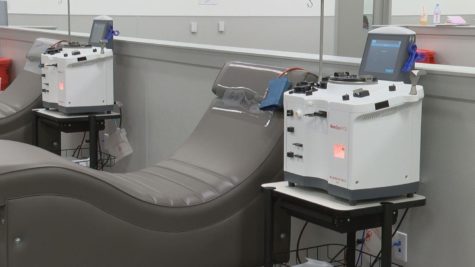Prepare your health before campus
March 20, 2017
Coming to campus is a new community for you, and for your health.
You share a physical environment with students coming from many different places across the state, country and world, each bringing their own slightly different health background.
The first few weeks are the time to focus on assignments, meeting people and enjoying campus — not the time to let your health slip. These are some general tips to help keep you feeling your best so you can succeed.
Prepare: Having basic medical supplies on hand can minimize illness, including allergy medication, ibuprofen and a heat/ice pack. If you know you’re prone to sore throats, keep cough drops or lozenges as well. Depending on the type of housing, you might want a bucket for when the flu hits in the middle of the night.
Do: The best way to avoid illness is to support your immune system through good hygiene and basic healthy habits — healthy habits that aren’t always at the front of a college student’s mind. These include being physically active, lowering stress, getting enough sleep, drinking plenty of fluids and eating nutritious food.
An easy way to incorporate these into your everyday routine is to make time to walk to class, balancing your schedule, carrying a reusable water bottle and packing a few healthy snacks. Plan ahead for walking shoes, what you need to get a good nights sleep, a reusable water bottle and snack containers or baggies.
Immunity: Some more serious illnesses require specific vaccines and tests that students take care of before coming to campus. While exemptions exist, most ISU freshmen are required to provide immunization records for the measles.
Students also are encouraged to get a meningitis vaccination, especially if they are living in the dorms. For students who traveled internationally, a tuberculosis screening is recommended. International students go through an international health screening visit that includes tuberculosis.
Other common vaccinations are offered on campus at Thielen Student Health Center. These include:
- Seasonal influenza
- Chicken Pox (Varicella)
- Hepatitis A & Hepatitis B
- Gardasil
- Tetanus, Diphtheria and Pertussis (Tdap)
- Pneumovax (specific risk groups)
















